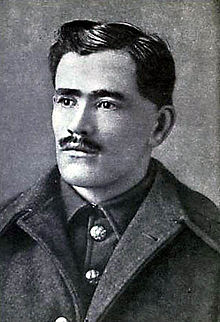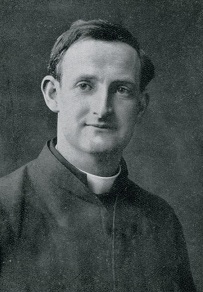The Widow's Mite, James Tissot [Wikipedia]
Readings
(New American Bible:
Philippines, USA)
Readings
(Jerusalem Bible: Australia,
England & Wales, India [optional], Ireland, New Zealand, Pakistan,
Scotland, South Africa)
Gospel Mark 12:38-44 [or 41-44] (New
Revised Standard Version, Anglicised Catholic Edition)
[As
Jesus taught, he said, ‘Beware of the scribes, who like to walk around in long
robes, and to be greeted with respect in the market-places, and to have the best seats in the synagogues and
places of honour at banquets! They devour widows’ houses and for the sake of
appearance say long prayers. They will receive the greater condemnation.’]
He sat down opposite the treasury, and
watched the crowd putting money into the treasury. Many rich people put in
large sums. A poor
widow came and put in two small copper coins, which are worth a penny. Then he called his disciples and said to them, ‘Truly
I tell you, this poor widow has put in more than all those who are contributing
to the treasury. For all of
them have contributed out of their abundance; but she out of her poverty has
put in everything she had, all she had to live on.’
Head of a Peasant Woman in a Green Shawl
Van Gogh [Web Gallery of Art]
There are moments that remain a grace from God for a person for the rest of his life, moments when he was simply an observer rather than a participant. One such moment for me happened one night more than forty years ago in Ozamiz City, Mindanao. It was quite late and I was looking out through an upstairs window in the convento (presbytery/rectory) of the Cathedral. As we say in Ireland, 'there wasn't a sinner to be seen' on the cathedral plaza except for two persons. One was a man, a beggar, maybe in his 30s. The other was Gregoria, known to everyone as 'Guria', a 'simple' woman and very gentle who would often wander in an out of classrooms in schools, doodle on the board and leave without having distracted anyone.
I noticed Guria, who was perhaps in her 40s, approach the man. She had two small pieces of bread, what is called pandesal in the Philippines. She gave one to the beggar, just like St Martin of Tours when still a soldier cutting his ample cloak in two and giving one half to a beggar. (St Martin's feast day is 11 November but is not observed this year as it is a Sunday.)
St Martin and the Beggar, El Greco [Web Gallery of Art]
What Guria did was pure, unselfish love. And yet she was probably unaware of this and certainly totally unaware of the fact that someone was observing her. She did not have a strong gift of reflection whereas God has given this to me and to most of us. But we don't always use that gift.
St Mark tells us, Jesus sat down opposite the treasury, and watched the crowd putting money into the treasury. And he saw 'Guria' there. Perhaps the widow in the gospel looked like the peasant woman in Van Gogh's painting above. But it would seem that his disciples hadn't observed her until Jesus drew their attention to her.
It is said that St Martin, after he had shared his cloak with the beggar, saw Jesus in a dream wearing that half-cloak. The reality is that Christ shows himself frequently to us, if we have eyes to see, as he showed himself to me through Guria more than forty years ago, and on many other similar occasions down the years.
A bronze mite [Wikipedia]
+++
Centennial of Armistice Day
Potijze
Chateau Grounds Cemetery,
Ieper (Ypres), Belgium, where my great-uncle Corporal Lawrence Dowd is buried.
This Sunday, 11 November, is the centennial of the Armistice, when the Great War, later to be known as World War One, ended at 11am on the eleventh of the eleventh, 11 November 1918.
I have posted a number of
times about finding the grave of my great-uncle, Corporal Lawrence Dowd, an
older half-brother of my maternal grandmother Annie Collins (née Dowd),
who died in the war on 6 August 1917. You will find one of those posts here.
May we remember in our prayers the millions who died in that terrible, pointless war, mostly soldiers, the vast majority of whom on both sides were in their teens and early 20s. Every one of them was an 'Uncle Larry', a husband, a father, a son, a brother, a nephew, a cousin, a grandson, a best friend, each with a name.
At the grave of Lawrence Dowd September 2001.
Uncle Larry was killed on the Feast of the
Transfiguration, 6 August 1917. I was the first relative to visit his grave.
When you go home,
tell them of us and say,
For their tomorrow, we gave our today.
John Maxwell Edmunds, 1916



















